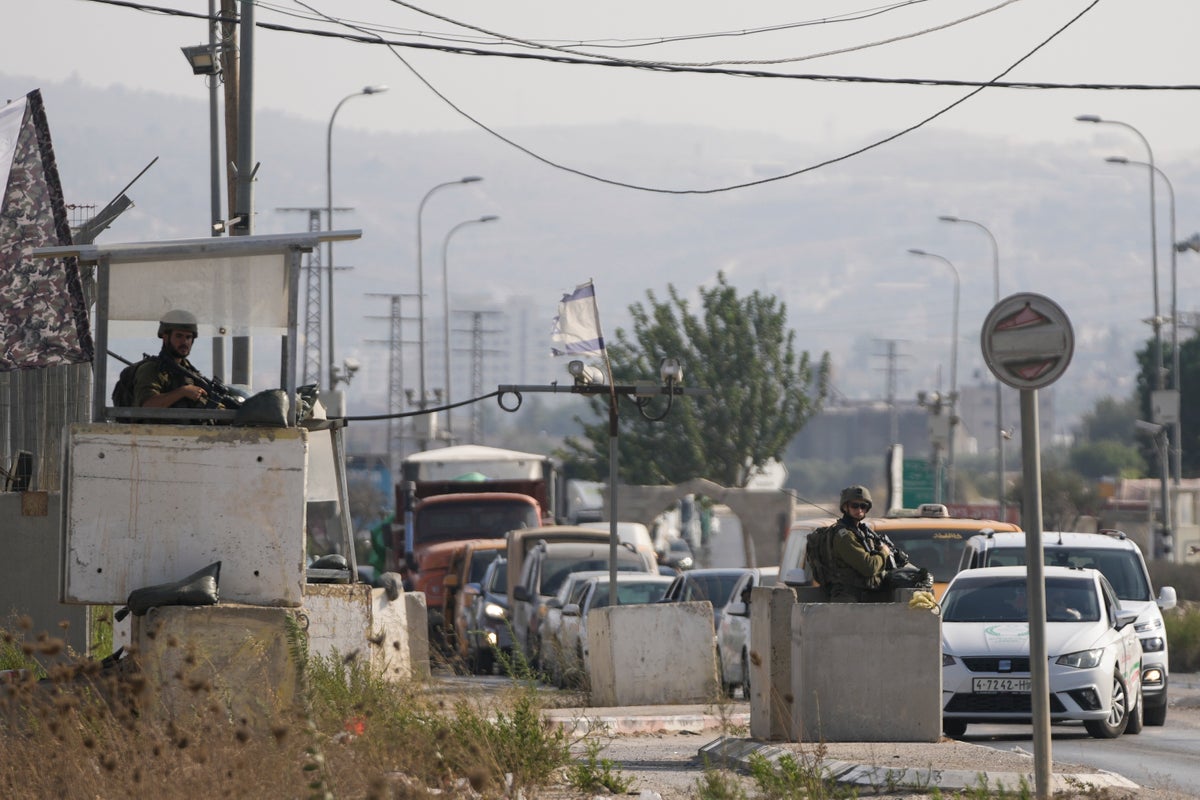
Two Israelis were killed in a suspected Palestinian shooting attack on a car wash in a volatile stretch of the occupied West Bank on Saturday, the latest outburst of violence to rock the region.
The Israeli military said it was searching for suspects and setting up roadblocks near the town of Hawara, a flashpoint area in the northern West Bank, which has seen repeated shooting attacks as well as a rampage by Jewish West Bank settlers who torched Palestinian property.
The shooting attack came after Palestinian official media said a 19-year-old Palestinian died of his wounds following an Israeli military raid into the West Bank on Wednesday.
The deaths are part of a relentless spiral of violence that has fueled the worst fighting between Israel and the Palestinians in the West Bank in nearly two decades. Nearly 180 Palestinians have been killed since the start of this year and some 29 people have been killed by Palestinian attacks against Israelis during that time, according to a tally by The Associated Press.
Israeli paramedics said that when they arrived at the scene at the car wash in Hawara, two Israeli males, aged 60 and 29, were found unconscious with gunshot wounds.
Videos circulating online showed Israeli soldiers walking across a large pool of blood at the car wash to help move two bodies on stretchers to awaiting ambulances.
Several Israelis have been killed in Hawara in the current round of fighting and the death of two brothers, residents of a nearby settlement, set off a rampage by settlers through the town in February. They torched dozens of cars and homes in some of the worst settler violence in decades.
Similar settler mob violence has taken place elsewhere in the West Bank since. Israeli rights groups say settler violence has worsened and that radical settlers have become emboldened because their cause has supporters in important government positions.
The violence in the area has prompted promises of a harsh response from members of Israel's far-right government and Finance Minister Bezalel Smotrich, a firebrand settler supporter, called for Israel to “erase” Hawara, a remark he later walked back, saying he meant that Israel should operate surgically within it against Palestinian militants.
Prime Minister Benjamin Netanyahu's government is composed of ultranationalist members who have demanded a harder line against the rising tide of Palestinian violence. Saturday's attack is likely to intensify those demands.
Palestinian militant groups praised the shooting attack, with Hamas, Islamic Jihad and the Democratic Front for the Liberation of Palestine posting statements online congratulating the perpetrators. Hamas spokesman Abdel Latif Al-Qanou called the attack a “heroic shooting operation.”
But the groups stopped short of claiming responsibility for the attack.
In the death of the Palestinian on Saturday, according to Wafa, the official Palestinian news agency, Mohammad Abu Asab, 19, was shot in the head on Wednesday during an Israeli army incursion into the Balata refugee camp near the northern West Bank city of Nablus. It cited medical officials.
The Israeli military said in its statement Wednesday that a commando unit raided Balata seeking to destroy an underground weapons factory when a gunfight erupted.
Wafa reported that during the fighting, Abu Asab was shot in the head and then taken to the Rafidia hospital in Nablus where he later died from his wounds. Palestinian health officials did not immediately confirm the death.
It was not immediately clear if Abu Asab was affiliated with a militant group and he wasn't immediately claimed as a member by any group.
Israel has been staging near-nightly raids since last spring in response to a spate of deadly Palestinian attacks.
Israeli says most of the Palestinians killed were militants. But stone throwing youths protesting the incursions and those not involved in the confrontations have also been killed.
Israel says the raids are meant to dismantle militant networks and thwart future attacks. The Palestinians see the violence as a natural response to 56 years of occupation, including stepped-up settlement construction by Israel’s government and increased violence by Jewish settlers.
Israel captured the West Bank in the 1967 Mideast war, along with east Jerusalem and the Gaza Strip. Some 700,000 Israelis live in the West Bank and east Jerusalem, while Israel withdrew from Gaza in 2005. The Palestinians seek those territories for their hoped-for independent state. ___
McNeil contributed from Jerusalem.







